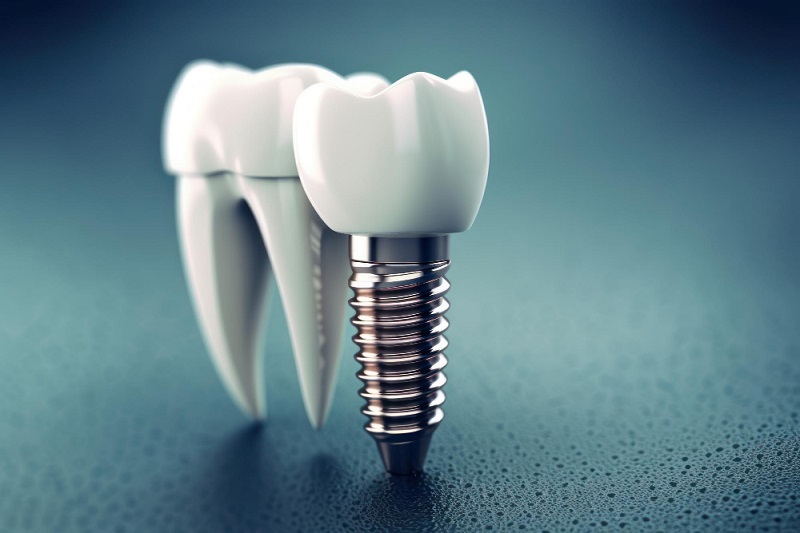When To Choose Implant Over Bridge? Expert Advice Inside

The age-old debate in dental restoration: implants vs. bridges. Both have their own set of advantages and disadvantages, and the choice between them depends on various factors, including the patient’s oral health, budget, and personal preferences. In this comprehensive guide, we will delve into the world of dental restoration, exploring the pros and cons of implants and bridges, and providing expert advice on when to choose one over the other.
Understanding Dental Implants
Dental implants are artificial tooth roots made of titanium that are surgically implanted into the jawbone to support a crown, bridge, or denture. They are a popular choice for replacing missing teeth because they are durable, long-lasting, and can restore the natural appearance and function of the tooth. Implants consist of three main components: the implant itself, the abutment, and the crown.
Understanding Dental Bridges
Dental bridges, on the other hand, are fixed appliances that are attached to adjacent teeth to fill the gap left by a missing tooth. They can be made of various materials, including porcelain, ceramic, or gold, and are held in place by crowns or implants. Bridges are a good option for patients who have healthy adjacent teeth and want to restore the appearance and function of their smile.
Implant vs. Bridge: Key Differences
When deciding between an implant and a bridge, there are several key differences to consider:
- Surgical Procedure: Implants require a surgical procedure to insert the implant into the jawbone, whereas bridges do not require surgery.
- Adjacent Teeth: Bridges require healthy adjacent teeth to support the bridge, whereas implants do not.
- Cost: Implants are generally more expensive than bridges, especially for multiple tooth replacement.
- Maintenance: Implants are easier to maintain than bridges, as they do not require special cleaning or maintenance.
- Longevity: Implants can last for 20-30 years or more with proper care, whereas bridges typically last for 10-15 years.
When to Choose Implant Over Bridge?
While both implants and bridges have their own advantages, there are certain situations where an implant is the better choice. Here are some expert guidelines to help you decide:
- Single Tooth Replacement: If you are missing a single tooth, an implant is often the better choice. Implants are designed to replace individual teeth, and they can be placed in the exact location of the missing tooth, restoring the natural appearance and function of the tooth.
- Adjacent Teeth Are Not Healthy: If the adjacent teeth are not healthy enough to support a bridge, an implant is the better choice. Implants do not require adjacent teeth to support them, making them a good option for patients with unhealthy adjacent teeth.
- Long-Term Solution: If you are looking for a long-term solution, an implant is the better choice. Implants can last for 20-30 years or more with proper care, whereas bridges typically last for 10-15 years.
- Bone Loss: If you have experienced bone loss due to missing teeth, an implant can help to restore the natural shape of your face and jawline. Implants stimulate the jawbone, preventing further bone loss and maintaining the natural appearance of your face.
Conclusion
Choosing between an implant and a bridge depends on various factors, including the patient’s oral health, budget, and personal preferences. While both options have their own advantages and disadvantages, implants are generally the better choice for single tooth replacement, when adjacent teeth are not healthy, for long-term solution, and when there is bone loss. Ultimately, the decision between an implant and a bridge should be made in consultation with a dental expert, who can assess your individual needs and provide personalized advice.
FAQ Section
What is the success rate of dental implants?
+Dental implants have a high success rate, with studies showing that they can last for 20-30 years or more with proper care.
How long does the implant procedure take?
+The implant procedure typically takes several months to a year to complete, depending on the complexity of the case and the patient's individual needs.
Are implants painful?
+While the implant procedure may cause some discomfort, most patients report that it is not painful. Local anesthesia and sedation are used to minimize discomfort during the procedure.
Can anyone get dental implants?
+While dental implants are a great option for many patients, they may not be suitable for everyone. Patients with certain medical conditions, such as diabetes or heart disease, may need to take special precautions before undergoing the implant procedure.
How do I care for my dental implants?
+To care for your dental implants, brush and floss them regularly, just like your natural teeth. You should also attend regular dental check-ups to ensure that your implants are functioning properly.
Are dental implants covered by insurance?
+Dental implants may be covered by insurance, depending on the patient's individual policy. It's best to check with your insurance provider to see if they cover dental implants.
By considering these factors and consulting with a dental expert, you can make an informed decision about whether an implant or a bridge is the best option for your individual needs.

